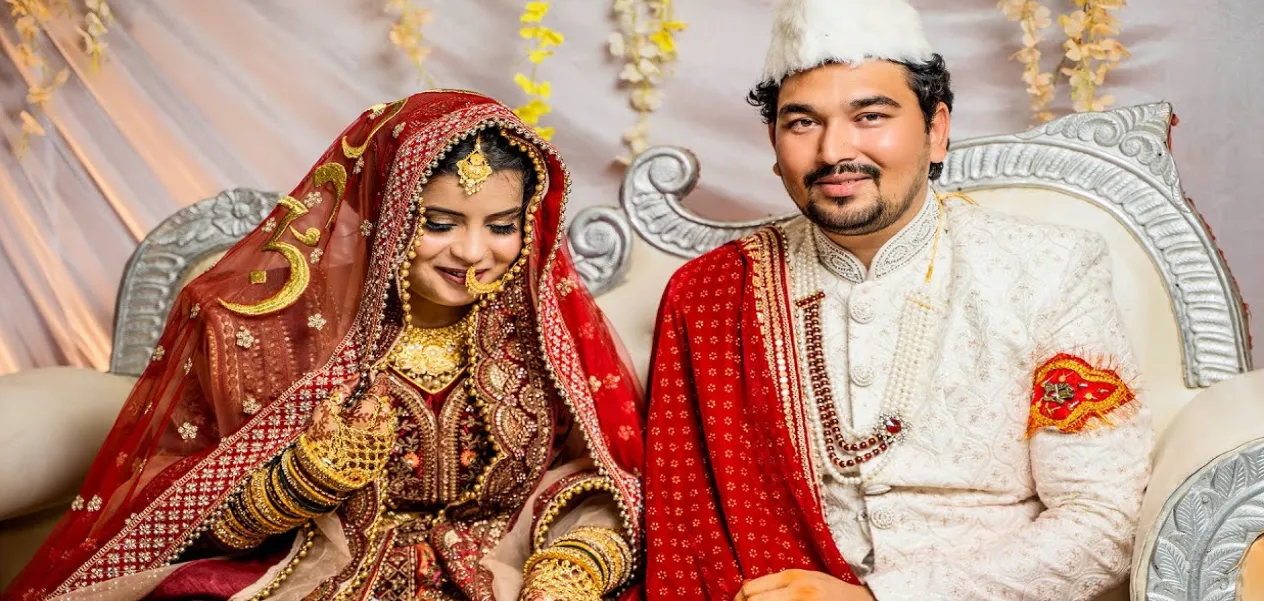
Malick Asghar Hashmi/Patna
The house of Shakeel Ahmed, Principal of the Government High School Phulwari Sharif, Bihar, is located at the end of a narrow lane adjacent to the Ibadan-e-Sharia building. One evening, a group of people sat in the lobby of his house finalizing the financial transaction that would go with the wedding of Syed Muqeem’s daughter as part of social tradition.
Muqeem had come all the way from Darbhanga. After details of transactions between the fathers of the would-be-groom and bride were finalised Shakeel Ahmed quipped, addressing his daughter’s would b father-in-law, "Don't forget to bring 'Ustani Jora along with Madri Haq!"
He also nodded in agreement before escorting Shakeel Ahmed to the railway station to board a train to his home.
The 'Madri Haq' and 'Ustani Joda' mentioned above refers to two dresses specially brought by the groom's family on the day of the wedding.
Madri Haqliterally means the right of the (bride’s) mother. It is a dress for the mother of the bride carried by the groom’s family. Ustani Jora (literally meaning dress for a teacher) is meant for the woman of the family who had acted as a teacher to introduce the girls in Bihar's Muslim families to the culture, etiquete and tradition.
This tradition shows the importance a woman – from the would- be-bride's family – get among Muslims of Bihar and belies the stereotypical image of a Muslim woman.
In Bihar, when a traditional wedding is being finalized between two families, during the negotiations its customary for the woman’s side to seek Madri Haq and Ustani Jora.
Firdaus Jahan, a teacher in a government school in Patna, says, “It is generally a custom in Bihar to give religious education to boys and girls.
Some people send their children to Maulvis or Madrassas for this, while girls go to women who provide training in Quran-Hadith. Many teachers visit the families of girls to impart religious education to them.They are called 'Ustaniji.
"Farida Bano, an elderly woman from Murarpur locality of Gaya, says that 'Ustani ji' does not teach Quran Hadith only to girls. She also introduces them to Muslim culture and instructs them how they are expected to behave in their family and society.
Farida Bano confidently says that no matter how high a position a girlreaches in life, she does not leave her original culture taught to her by her ustaniji. A granddaughter of Farida Bano is working in Bengaluru after completing her Master in Fine Arts from IIT Mumbai, while the other is preparing for the competitive examination to get admission in MTech. She says that both her granddaughters, despite having modern ideas, are cultured.
Naushad Akhtar says that if for some reason a girl takes religious education from a Maulana instead of Ustani, then for her marriage, clothes are specially bought from the boy's house.
However, they are not given the same importance that Ustani is given.
Shehla Parveen, a native of Bihar, who lives in Nagpur, says, “The culture of Ustani Joda exists only in Bihar. This is not seen in other parts of the country. Even those who migrated from Bihar to Pakistan during partition, they too follow this custom.”
Mufti Hasnain Akhtar of Darul Uloom, Gaya, says, “Talim (education) and Ustad (teacher) are given special importance in Islam. If the master is a woman then this importance increases further.”
ALSO READ: Journey of Baramati's Karishma Inamdar from a village to NASA is inspiring
According to him, “During the Mughal period, the culture of 'Ustani' was in a different form; she taught royal etiquette to queens and princesses. Back then women with special qualities were deployed in Zannan Khana (women’s quarter). Its mention is found in many history books.”
